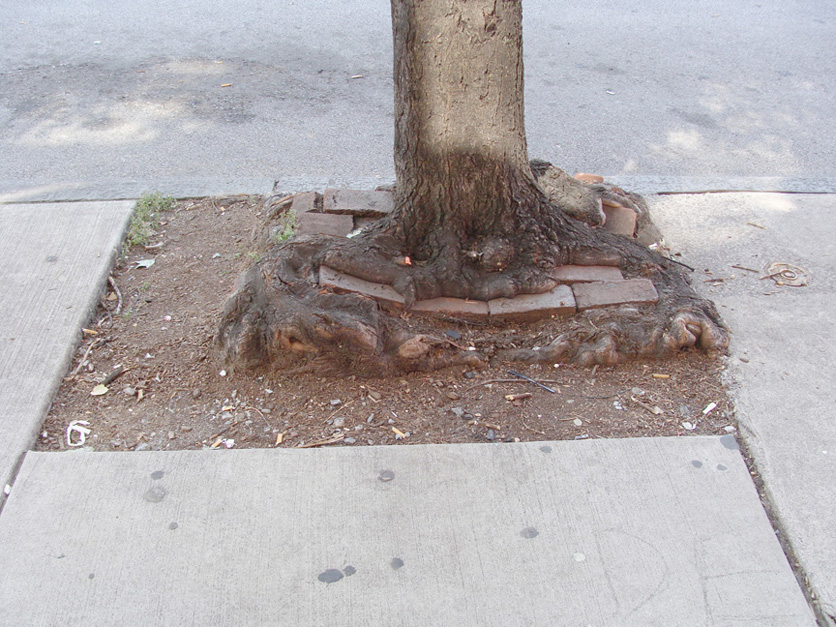IT’S NOT JUST YOU
Most men and women lead lives at the worst so painful, at the best so monotonous, poor and limited that the urge to escape, the longing to transcend themselves if only for a few moments, is and has always been one of the principal appetites of the soul. Art and religion, carnivals and saturnalia, dancing and listening to oratory – all these have served, in H. G. Wells’ phrase, as Doors in the Wall. And for private, for everyday use there have always been . . . intoxicants. . . . The urge to escape from selfhood and the environment is in almost everyone almost all the time.
Aldous Huxley (1894 – 1963)
HOWEVER
MOST MENTAL SUFFERING
AND THE PHYSICAL HARM IT CAUSES
IS SELF-INFLICTED — BASED ON ILLUSIONS
ON FICTIONS OF THE IMAGINATION
ON MENTAL CONSTRUCTS
THAT IN FACT DO NOT
EXIST
There is nothing either good or bad,
but thinking makes it so.
William Shakespeare (c. 1564 – 1616)
No man is happy unless he thinks he is.
Publilius Syrus (c. 50 BCE)
Things do not torment a man so much,
as the opinion he has of things.
Michel de Montaigne (1533 – 1592)
Misery is almost always the result of thinking.
Joseph Joubert (1754 – 1824)
Remember that all is but opinion,
and all opinion depends on the mind.
Marcus Aurelius Antoninus Augustus (121 – 180)
It all depends on how we look at things,
and not on how they are in themselves.
Carl Gustav Jung (1875 – 1961)
If people do not crave to be pleased
they will not be displeased.
What causes mental suffering is not the environment
but the mind itself.
Muso Soseki (1275 – 1351)
Look at the principles of causation stripped of their husks; at the objective of actions; at what pain is, what pleasure, what death, what fame. See who is to blame for a man’s inner unrest; how no one can be thwarted by another; that nothing is but what thinking makes it.
Marcus Aurelius Antoninus Augustus (121 – 180)
That which gives men disquiet, and makes their lives miserable, is not the nature of things as they really are, but the notions and opinions, which they form to themselves concerning them. Our opinion that something is good or evil is the only thing that makes it so. Therefore, whenever we meet with obstructions and perplexities, or fall into troubles and disorders, let us be just, and not lay the blame where it is not due, but impute it all to our own selves and to our prejudiced opinions.
Epictetus (55 – 135)
It is so much more convincing, to see how something happens to me, rather than to observe how I myself made it. The animal nature of man fights against the feeling that it is itself the maker of its given facts.
Carl Gustav Jung (1875 – 1961)
A lost battle is a battle one thinks one has lost.
Ferdinand Foch (1851 – 1929)
I have looked through the list of illnesses, and did not find cares or sad thoughts mentioned among them. That is a mistake, surely.
Georg Christoph Lichtenberg (1742 – 1799)
Opinions
of good and bad,
and of right and wrong,
do not exist in the physical world;
not anyplace outside of the mind.
My life has been full of terrible misfortunes most of which never happened.
Michel de Montaigne (1533 – 1592)
How much pain the evils have cost us that have never happened.
Benjamin Franklin (1706 – 1790)
Happiness is not easy: it is very difficult to find it in us, and impossible to find it elsewhere
Chamfort, né Sébastien-Roch Nicolas (1741 – 1794)
In life we are so beset by a multitude of pressing, pushing things, that we never get the time − on account of so many “given facts”− to think about who really “gave” them.
Carl Gustav Jung (1875 – 1961)
The worst sorrows in life are not in its losses and misfortunes,
but its fears.
Arthur Christopher Benson (1862 – 1925)
NOW
THINK A WHILE
ABOUT THE MENTAL SUFFERING
AND THE PHYSICAL HARM THAT IT CAUSES
WHICH IS SELF-INFLICTED — BASED ON ILLUSIONS
ON FICTIONS OF THE IMAGINATION
ON MENTAL CONSTRUCTS
THAT IN FACT DO NOT
EXIST
Tomorrow, and tomorrow, and tomorrow,
Creeps in this petty pace from day to day,
To the last syllable of recorded time;
And all our yesterdays have lighted fools
The way to dusty death.
Out, out, brief candle!
Life’s but a walking shadow, a poor player,
That struts and frets his hour upon the stage,
And then is heard no more.
It is a tale
Told by an idiot, full of sound and fury,
Signifying nothing.
William Shakespeare (1564 – 1616)
Let us confess it: the human situation is always desperate.
Lewis Mumford (1895 – 1990)
I don’t know why we are here, but I’m pretty sure that it is not in order to enjoy ourselves.
Ludwig Wittgenstein (1889 – 1951)
I have now reigned about fifty years in victory or peace, beloved by my subjects, dreaded by my enemies, and respected by my allies. Riches and honors, power and pleasure, have waited on my call, nor does any earthly blessing appear to have been wanting to my felicity. In this situation I have diligently numbered the days of pure and genuine happiness which have fallen to my lot: they amount to fourteen.
Ascribed to ABD-ER-RAHMAN III of Spain (c. 960)
When I count up the rare minutes of real happiness in my life, I do not believe they make more than twenty four hours.
Otto von Bismark (1815 – 1898)
The greatest of all illusions is to think that anything could ever satisfy us. It is this illusion that makes things seem intolerable and bars the way to all progress, and it is one of the most difficult things to overcome.
Carl Gustav Jung (1875 – 1961)
Although the whole of life is allowed by everyone to be short, the several divisions of it appear long and tedious.
Joseph Addison (1672 – 1719)
The present is never our goal: the past and present are our means: the future alone is our goal. Thus, we never live but we hope to live; and always hoping to be happy, it is inevitable that we will never be so.
Blaise Pascal (1623 – 1662)
Giacometti was hit by a car while crossing the Place d’Italie. Though his leg was twisted, his first feeling, in the state of lucid swoon into which he had fallen, was a kind of joy: “Something has happened to me at last!”
Jean-Paul Sartre (1905 – 1980)
To act without clear understanding, to form habits without investigation, to follow a path all one’s life without knowing where it really leads — such is the behavior of the multitude.
Mencius (c. 372 – 289 BCE)
Certainty generally is illusion, and repose is not the destiny of man.
Oliver Wendell Holmes, Jr. (1841 – 1935)
Life is short, art long, occasion sudden; to make experiments dangerous; judgment difficult.
Hippocrates (c. 460 – 370 BCE)
But in general man has to grope his way. He knows not whence he comes nor whither he goes; he knows little of the world and himself least of all.
Johann Wolfgang van Goethe (1749 – 1832)
There are but three general events which happen to mankind: birth, life and death. Of their birth they are insensible, they suffer when they die, and neglect to live. [Not necessarily but too often true.]
Jean de la Bruyere (1645 – 1696)
The greatest and most important problems of life are all in a certain sense insoluble . . . They can never be solved but only outgrown.
Carl Gustav Jung (1875 – 1961)
Has any man ever attained to inner harmony by pondering the experience of others? Not since the world began! He must pass through the fire.
Norman Douglas (1868 – 1952)
We deem those happy who from the experience of life have learned to bear its ills without being overcome by them.
Carl Jung (1875 – 1961)

Nothing is easy.
David Sive (1922 – 2014)

Civilized man, on the other hand, is always moving, sweating, toiling and racking his brains to find still more laborious occupations: he goes on in drudgery to his last moment, and even seeks death to put himself in a position to live, or renounces life to acquire immortality. He pays his court to men in power, whom he hates, and to the wealthy, whom he despises; he stops at nothing to have the honor of serving them; he is not ashamed to value himself on his own meanness and their protection; and, proud of his slavery, he speaks with disdain of those, who have not the honor of sharing it.
Jean Jacques Rousseau (1712 – 1778)
I was part of that strange race of people aptly described as spending their lives doing things they detest, to make money they don’t want, to buy things they don’t need, to impress people the don’t like.
Emile Gauvreau (1891 – 1956)
Indeed every assent we give to the impressions of our senses is liable to error . . . . Pass on then to the objective things themselves, how transitory they are, how worthless, the property . . . . After that turn to the characters of thine associates, even the most refined of whom it is difficult to put up with, let alone the fact that a man has enough to do to endure himself.
Marcus Aurelius Antoninus Augustus (121 – 180)
. . . nothing in this world matters very much in the long run and . . . it is accordingly profitless to get too much worked up over anything.
George Jean Nathan (1882 – 1958)
. . . every event is utterly pointless, every object intensely unreal, every self-styled human being a clockwork dummy, grotesquely going through the motions of work and play, of loving, hating, thinking of being eloquent, heroic, saintly, what you will – the robots are nothing if not versatile.
Aldous Huxley (1894 – 1963)
He scorns that which he sought; he seeks again what he just scorned;
He fluctuates, and his whole life a contradiction is.
Horace (65 – 8 BCE)
We look back on our life as a thing of broken pieces, because our mistakes and failures are always the first to strike us, and outweigh in our imagination what we have accomplished and attained.
Johann Wolfgang van Goethe (1749 -1832)
If people bring so much courage to this world the world has to kill them to break them, so of course it kills them. The world breaks every one and afterward many are strong at the broken places. But those that will not break it kills. It kills the very good and the very gentle and the very brave impartially. If you are none of these you can be sure it will kill you too but there will be no special hurry.
Ernest Hemingway (1899 – 1961)

Wolfgang Amadeus Mozart
composed some of the greatest music in recorded history.
At the age of 31, he died a pauper.
There is rarely a creative man who does not have to pay a high price for the divine spark of his great gifts . . . the human element is frequently bled for the benefit of the creative element . . . .
Carl Gustav Jung (1875 – 1961)
Everything great in the world comes from neurotics. They alone have founded our religions and composed our masterpieces. Never will the world know all it owes to them nor all that they have suffered to enrich us.
Marcel Proust (1871 – 1922)
There is no great genius without a touch of dementia.
Seneca (c. 4 BCE – 65 CE)
The only normal people are the ones you don’t know very well.
Alfred Adler (1870 – 1937)
Great talents are the most lovely and often the most dangerous fruits on the tree of humanity. They hang upon the most slender twigs that are easily snapped off.
Carl Gustav Jung (1875 – 1961)
I put my heart and my soul into my work, and have lost my mind in the process.
Vincent van Gogh (1853 – 1890)
A gloomy, hair-brained enthusiast, after his death, may have a place in the calendar; but will scarcely ever be admitted, when alive, into intimacy and society, except by those who are as delirious and dismal as himself.
David Hume (1711 – 1776)
If you succeed in life, you must do it in spite of the efforts of others to pull you down.
E. W. Howe (1853 – 1937)
The strongest man in the world is he who stands most alone.
Henrik Ibsen (1828 – 1906)

To pursue trifles is the lot of humanity; and whether we bustle in a pantomime, or strut at a coronation, or shout at a bonfire, or harangue in a senate-house – whatever object we follow, it will at last conduct us to futility and disappointment. The wise bustle and laugh as they walk in the pageant, but fools bustle and are important; and this probably is all the difference between them.
Oliver Goldsmith (1730 – 1774)
Looking around on the noisy inanity of the world, — words with little meaning, actions with little worth, — one loves to reflect on the great Empire of Silence, higher than all stars; deeper than the Kingdom of Death! It alone is great; all else is small.
Thomas Carlyle (1795 – 1881)
Applaud friends, the comedy is over.
Ludwig van Beethoven (1770 – 1827), on his deathbed.
HOWEVER
REMEMBER THAT
MOST MENTAL SUFFERING
AND THE PHYSICAL HARM IT CAUSES
IS SELF-INFLICTED — BASED ON ILLUSIONS
ON FICTIONS OF THE IMAGINATION
ON MENTAL CONSTRUCTS
THAT IN FACT DO NOT
EXIST
∴
↓
Sengcan said to the Zen master Huike, “I am riddled with sickness; please absolve me of my sin.” Huike said, “Bring me your sin and I will absolve you.” After a long pause, Sengcan said, “When I look for my sin I cannot find it.” Huike said, “I have absolved you.”
Anonymous
Things are important so long as you
have to keep or want to keep alive.
Everything else follows.
Addaitu Ling (c. 1930 – )


. . .
.
__ __
Copyright © 2008 – 2025 TimeIsNot.com